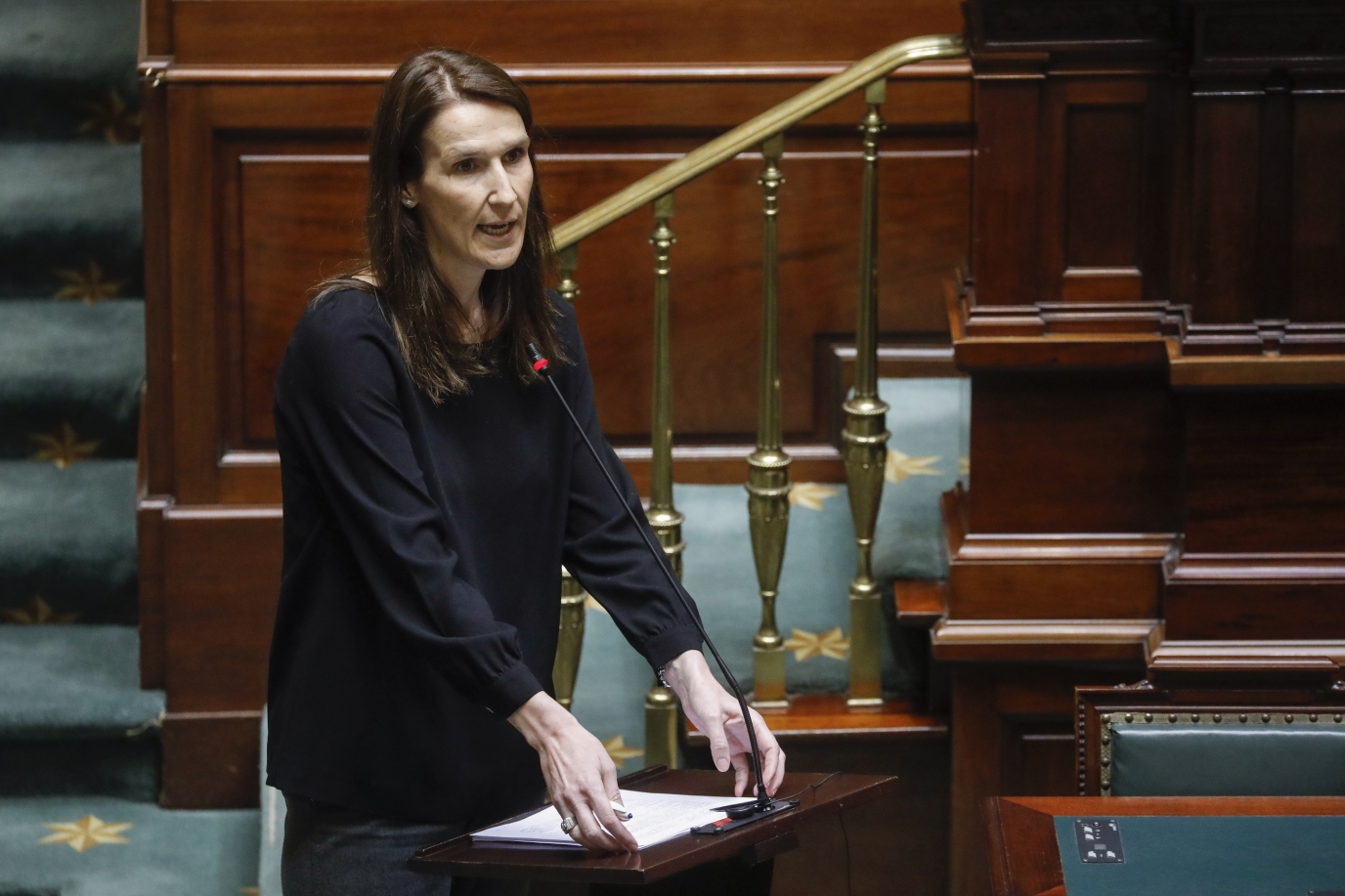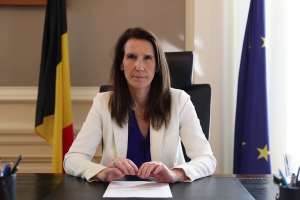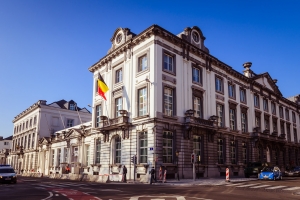Response to the questions in plenary on the COVID19 crisis and the government's approach
Check against delivery.
Thank you for your questions, which I will come to in a moment.
As in my other addresses over the past few weeks, let me start by thanking, on behalf of everybody here, our many fellow citizens who are tirelessly working to save lives and keep our country going.
Thank you also to those who, by complying with the difficult lockdown measures, are doing their bit to look after the population as a whole.
Our thoughts also go out to the most vulnerable among us, on whom this crisis places an additional burden.
Of course, on behalf of the government and no doubt also of this parliament, I would also like to express our deepest condolences to those who have lost a loved one, and for whom that painful experience has been made even harder by the current situation .
Based on the latest information we have received, I can report that in Belgium to date, 24,983 people have tested positive for COVID19. Of those, 5,590 have been admitted to hospital, with 1,285 requiring treatment in intensive care.
Sadly, there have been 2,523 confirmed deaths from COVID19 so far.
The reporting of the number of deaths sometimes gives rise to international comparisons. However, we should sound a note of caution here.
The first point to make is that comparisons by their very nature distort the human and psychological impact of each individual death. Behind each and every statistic there are people who have lost their lives, and friends and family members who are suffering.
The second point is that in many cases, reports from various countries cannot be compared meaningfully as we are all experiencing this health situation on different scales and at different times.
It is also worth mentioning that certain countries only report deaths in hospitals (in other words, excluding deaths in nursing and care homes), while others just report confirmed COVID-19 cases and still others only report deaths due solely to COVID19, thereby excluding cases of co morbidity.
In Belgium, we are being as transparent as possible by reporting the total number of deaths, including those in nursing homes and adding suspected cases to the figures as soon as we receive the relevant information, and that also goes for patients suffering from other underlying health conditions.
This does indeed have a major impact on the statistics, but I would reiterate that when talking about numbers, the most important thing we should all bear in mind is that behind the statistics there are the individual lives being lost.
To answer your question about coordination, Mr Calvo, as you know – and as I have already said – coordination is vital to ensuring we succeed.
Obviously Belgium is a country with a particularly complex institutional framework and with competences divided up across different levels. I believe that we will only succeed if we all work together and pull in the same direction at all levels of power.
We are coordinating our approach on a daily basis in various forms: whether through interministerial conferences or working groups bringing together experts from the federal level and the federated entities, or the Consultation Committee, the National Security Council expanded to include the Minister Presidents of the various regions and communities, or the many instances of ad-hoc contact occurring when specific, urgent problems arise.
Moreover, the regions and communities have recently held a meeting to address the issue of managing the Easter holidays in the education system, just to take one example. And of course, they can always meet to coordinate their efforts in areas that do not fall within the federal government's purview.
In the same spirit, when the Minister President of Wallonia asked me on Tuesday evening about the pressing situation in nursing and care homes in Wallonia in particular, the federal government responded immediately and without delay, as you would expect.
For example, yesterday we specifically looked at how – through the Ministry of Defence and its military personnel – we could provide emergency assistance to nursing homes in desperate need until the regions find a more permanent solution.
The Walloon Region is working on its list of needs as I speak.
We are also in touch with the Flemish Region and the Brussels-Capital Region to gain an overview of all their needs. This will enable us to distribute the available resources as judiciously as possible.
We will be having an OCC meeting about this tomorrow.
I should also mention that other meetings, namely interministerial health conferences, were held this morning. We discussed the issue of oxygen in nursing homes, with additional support being provided by hospitals. And I should also point out to you that it is wrong to say that hospitals have requisitioned nursing homes' oxygen-supply equipment because different principles apply to the provision of such equipment to these two settings, as Federal Health Minister Maggie de Block indicated to me during the plenary.
So as you know, alongside all of this we are still working around the clock on the supply of equipment: not only the supply of protective equipment but also the supply of medical equipment and of drugs.
When it comes to face masks, I would remind you that there is a global shortage and that the supply markets are under extreme pressure.
You ask me about the universal wearing of masks, which is a frequent bone of contention, not only in Belgium but also abroad.
As you know, the guidelines we have been issuing since the start of the crisis draw on the opinion of the World Health Organisation, or WHO, which is used as a basis by the scientific experts sitting on the Risk Management Group, or RMG.
This week, the WHO has reaffirmed that it is not recommending that everybody should wear masks.
At this stage, the RMG too has neither recommended that everybody should wear them nor issued any advice that doing so should be made mandatory. It has clearly not banned or rejected wearing masks, as I thought your question suggested. In fact, nobody has rejected this.
The FPS Health has even posted online, on social media, a tutorial for anybody wishing to make a mask for themselves.
However, the RMG does warn against any misconception that a mask provides complete security, especially if it is not used properly or in line with the guidelines.
The RMG also reiterates that the lockdown, social distancing and hygiene measures are currently the most effective ways of protecting everybody.
Of course, all these guidelines are constantly under review.
But obviously, as I repeated last week, it is completely legitimate and indeed recommended for each and every individual to protect their own health and that of others through social distancing, as was already mentioned, and through the preventive and physical measures best suited to the relevant context. To this end, ongoing information about best practices is essential.
Therefore, we again asked the Risk Management Group to assemble a special working group, responsible for once more reviewing this issue, and we are expecting a response from this group as soon as possible.
We must of course incorporate the issue of universal mask-wearing into our efforts to plan the exit from the lockdown, a step currently being examined by the Exit Strategy Expert Group .
The public will obviously be notified immediately when or if new national scientific recommendations emerge.
As you can see, we are straining every sinew to manage this crisis. Saving lives remains our priority, but we also have a responsibility to plan for the future.
That is why, as I told you in plenary last week, a group of 10 experts was officially established this Monday with a view to developing a strategic vision to act as a guide when relaxing the measures taken to combat the coronavirus.
We realise that there can only be a gradual return to normality.
The Exit Strategy Expert Group will supply analyses and recommendations that will help us in our decision making.
Most of its members are from the healthcare community, which provides an indication of their remit within the group. In their deliberations, they are aided by experts from the social and economic arenas and from major institutions.
I would like to stress that this is not a group made up of politicians or individuals who are meant to represent one group or sector in particular.
Instead, each of its members brings to the table their expertise in a specific field, their experience and of course their sensitivity as well. What unites them is their willingness to examine together the difficult issue of the gradual easing of the lockdown, covering all these facets, focusing of course on the human aspect.
(The Exit Strategy Expert Group is also completely free to come up with its own opinions and to consult experts from all walks of life and players in the field, from every sector, for input to feed into their discussions.)
The first meeting of the Exit Strategy Expert Group has been held, and it will now meet every day of the week. Its first report is expected next Tuesday.
In any event, as has been the case so far, final decisions will always have to be made in the National Security Council, whose members include the Minister Presidents of the regions and communities.
There is a question about the recovery. This week, we read the joint presentation by the Federal Planning Bureau and the National Bank about the conclusions drawn from a scenario developed based on various assumptions. I think it is important to underscore here that this is not a forecast but a scenario.
This scenario boils down to an 8% decline in growth this year, resulting in a nominal deficit of 7.5% of GDP and in national debt amounting to 115% of GDP in 2020.
Clearly, the socio-economic situation following the coronavirus crisis will be very difficult for everybody to assuage, both worldwide and in Belgium.
And as I have already said, there is no doubt that the situation after COVID19 will be very different from the situation beforehand in terms of both how we see our relationship with others and how we should mould our society. That is absolutely clear to me. The issue of economic recovery or deployment or redeployment – whatever we wish to call it – will indeed play a prominent role in our deliberations at Belgian, European and global levels. I believe that all these highly strategic issues, at least at the Belgian level, must not and should not be debated here just like that, but within the framework of a government having within it, and also within Parliament, a fully-fledged majority, given that these will require decisions to be made that will be fundamental to the future of our country.
Turning to the questions about Europe, it is true that this unprecedented situation requires a collective effort on the part of EU Member States and the various European institutions.
We know that there is also a three-pronged strategy at European level, and of course there is the European Green Deal: an initiative that has clearly always been envisaged as an opportunity and a boost for our economy. We have already talked about this on many occasions, so let us turn to the three-pronged strategy.
- First, there is the support and refinancing for national systems for temporary unemployment and part-time work, known as the SURE instrument . This provides a system offering €100 billion in loans.
- Through the European Investment Bank, there are also guarantees amounting to €200 billion for businesses, in particular for SMEs.
- Finally, there is the European Stability Mechanism, or ESM, with €410 billion in firepower.
The Eurogroup will meet again this evening, although progress has already been made on the conditions governing the use of the ESM, but unfortunately there are still some stumbling blocks.
However, we know that by supporting one vulnerable European country, we are supporting Europe as a whole. That is what we believe.
And given the severity of the crisis, it is now high time for an agreement to be reached.
Thank you.
 © BELGA PHOTO THIERRY ROGE
© BELGA PHOTO THIERRY ROGE

